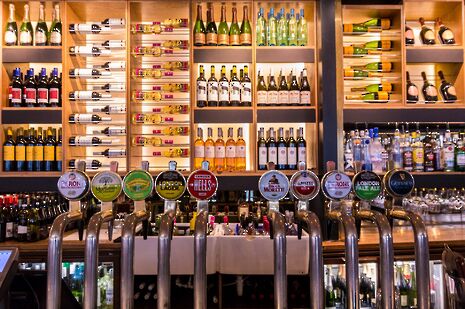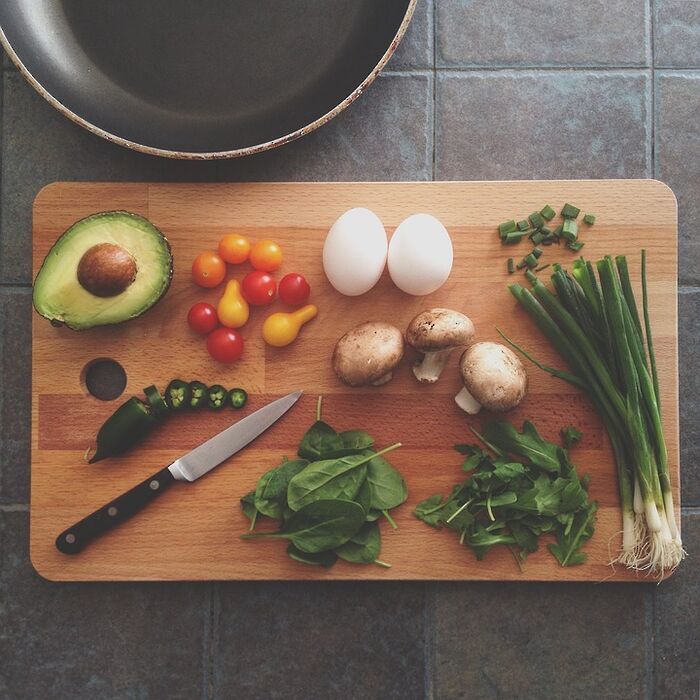Ethical Alcohol: there’s a fish in your drink!?
Maddie Paige investigates how to ensure your tipple is environmentally friendly

We all love a cheeky tipple (yes, even at Cambridge), but whether we’re pre-ing, dancing to whatever horrifying trash playing in Vinyl, collecting your post-night out cheesy chips or just going to the college bar with your mates, the last thing on your mind is, generally, what is in your pint. But perhaps it should be?
We all know alcohol isn’t ‘good for us’, but do you know how bad it is for the planet? There are lots of hidden ingredients in alcohol (including animal products!) and some of them are pretty gross. But do not fear! Here is a guide of how to make sure your alcohol is ethical- at least as far as animals are concerned.
Wines
Wine isn’t vegan? I’m afraid to say- it’s not even vegetarian. Many wineries use either egg whites, gelatin or fish bladders in order to clarify the wine and make it clear. Luckily however, Sainsbury’s have a massive selection of vegan wine of varying prices- ethical doesn’t have to mean expensive! Another massive tick from me is the fact that nearly all Sainsbury’s House or Taste the difference wine products are vegan! And have very clear labels on the back if they are. So next time you’re getting ready for whatever extravaganza lies before you, check the label and party on.
White
Penguin Sands Chardonnay (£3.75)
Leopards Leap Sauvignon (£4.50)
Mondelli Pinot (£5)
Contralto Pinot (£5)
Clearsprings Sauvignon Blanc (£5.50)
Palastri Pinot Blush (£5.50)
Oxford Landing Sauvignon Blanc (£6)
Rocca Murer Pinot (£7)
Most wanted Albarino (£7.75)
Les Caillottess Sancerre (13.50)
Red
Penguin Sands Merlot (£3.75)
Elegido Cabernet Sauvignon and Merlot (£4.25)
Stoneberg Pinotage Cinsault (£4.85)
Caminada Malbec (£5)
Montpierre Reserve Fitou (£5.75)
La Patrie Cahors Malbec (£5.75)
Camindo del Angel Cabernet Sauvignon (£5.75)
Santa Julia Malbec (£9)
Prosecco
La Gioiosa Prosecco
Edizione Di Mondelli Prosecco
And again, all of Sainsbury’s own are animal-product free!
Beers
Now this one is, again, a strange one. Although in the minority, there are still beers being produced using animal products. Some brands use isinglass (dried fish swim bladders) for the clarification of beer, the collagen supposedly helping the yeast sediment to settle faster in the making process. But again, there is a way to clink without a fish in your drink! Here are some ethical alternatives:
BrewDog Punk IPA, San Miguel, Holsten Pils Lager, Carlsberg, Sainsbury's Kentish ale, Budweiser, Cobra, Stella, Budweiser, Becks, Corona, Heineken
These are all good to go- drink to your heart's (or liver's) content. However, brands to avoid include Carling, Fosters and Kronenberg which are all still using isinglass. BOO!
Cider
This is one that surprised even me! Cider joins wine and beer in once again using isinglass in the distilling process. However, joining the ocean mix in the refining process this time is chitin, in other words, crab shells and fish scales. So scrub Bulmers Original, Magners Original, Strongbow, Rekordalig and Scrumpy Jack off your regulars’ order, and replaced instead with Aspall Suffolk Cyder, Stowford Press, Thatchers Cider (of any kind) and Stonewell Cider
Spirits
Spirits are a very easy one- any spirit that is translucent and doesn’t contain honey will be vegan, which means all of your classics are good to go! However, be careful; some whiskeys or rums may contain honey, although if they do they generally say so in the name.
Despite the significant amount of alcohol still being made using unnecessary animal-products, there are still more than enough variations of alcohol, in all their glory, for you to let your hair down and have a good time, guilt-free, bee-free, fish-free.
But why is honey bad? We are often told that bees are there to make honey for us, that it is a natural process. However, as bee farming has developed more and more unethical practices have been adopted, with beekeepers aiming to harvest the maximum honey yield at the expense of the bee’s health. The practices of clipping the wings of Queen bees so they are unable to move to a colony elsewhere, or replacing honey from hives with a sugar substitute significantly lacking in the essential micro-nutrients needed are commonplace. This is in addition to selective breeding (to boost productivity) which narrows the populations gene pool and increases susceptibility to disease and large-scale die-offs. If we can at least cut back from honey in our alcohol, we are doing some good!
Despite a significant amount of alcohol still being made using unnecessary animal-products, there are more than enough variations of alcohol, in all their glory, for you to be able to let your hair down and have a good time, guilt-free, bee-free, fish-free. Brands are constantly changing recipes, so if you’re ever unsure about a product it is super easy to have a quick google and find out. Equally check the labels or refer to this list and reduce your animal-product consumption, without really having to try hard at all.
 Features / Are you more yourself at Cambridge or away from it? 27 January 2026
Features / Are you more yourself at Cambridge or away from it? 27 January 2026 News / Vigil held for tenth anniversary of PhD student’s death28 January 2026
News / Vigil held for tenth anniversary of PhD student’s death28 January 2026 Interviews / Lord Leggatt on becoming a Supreme Court Justice21 January 2026
Interviews / Lord Leggatt on becoming a Supreme Court Justice21 January 2026 News / Reform candidate retracts claim of being Cambridge alum 26 January 2026
News / Reform candidate retracts claim of being Cambridge alum 26 January 2026 News / Cambridge study to identify premature babies needing extra educational support before school29 January 2026
News / Cambridge study to identify premature babies needing extra educational support before school29 January 2026









